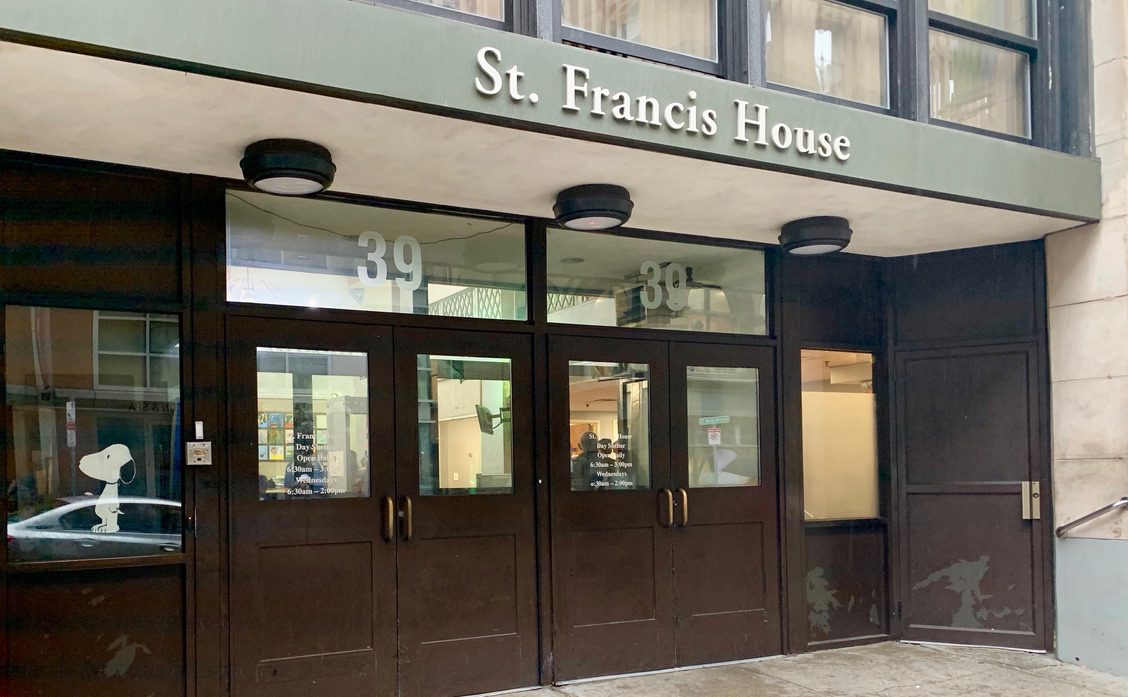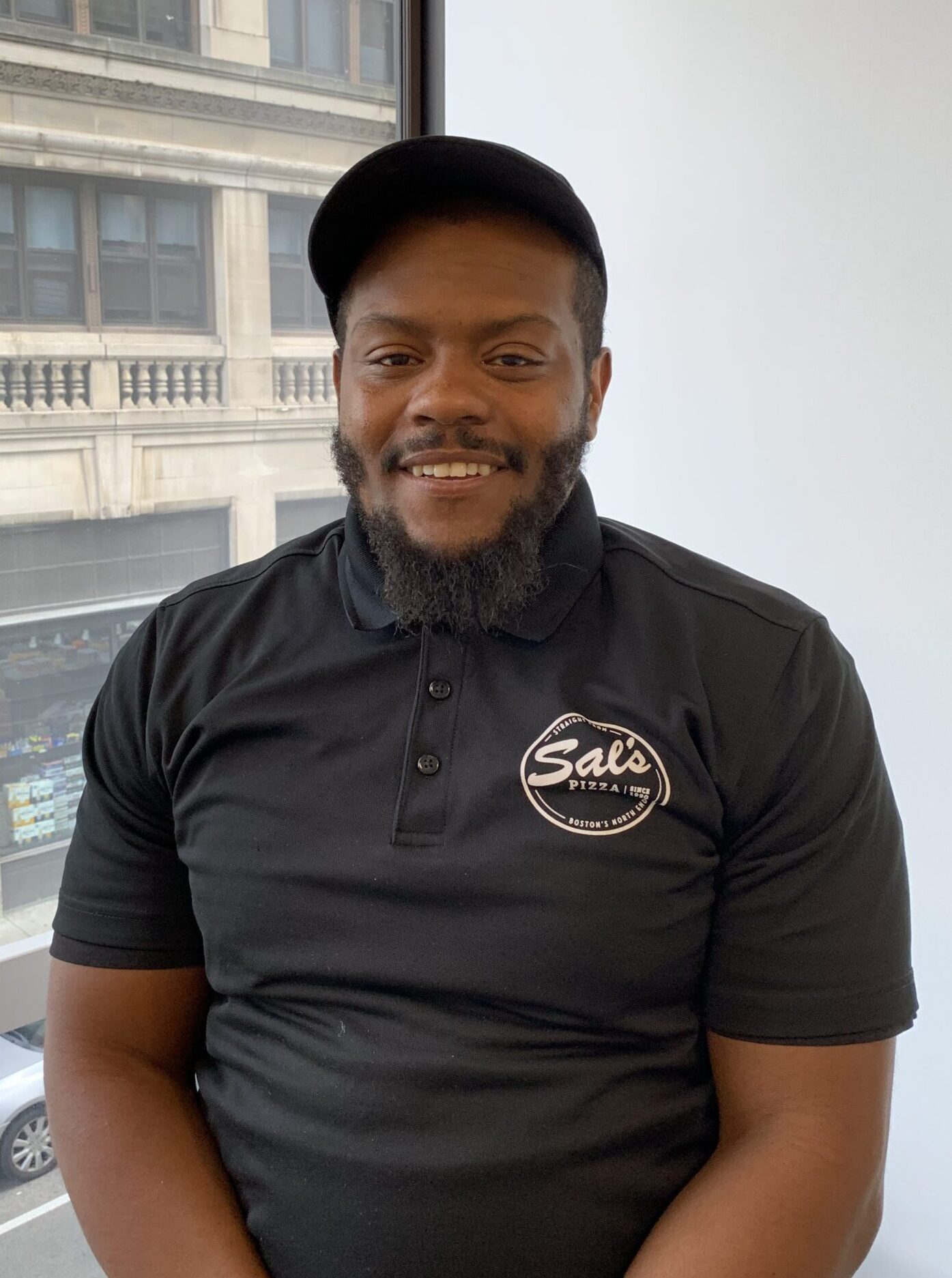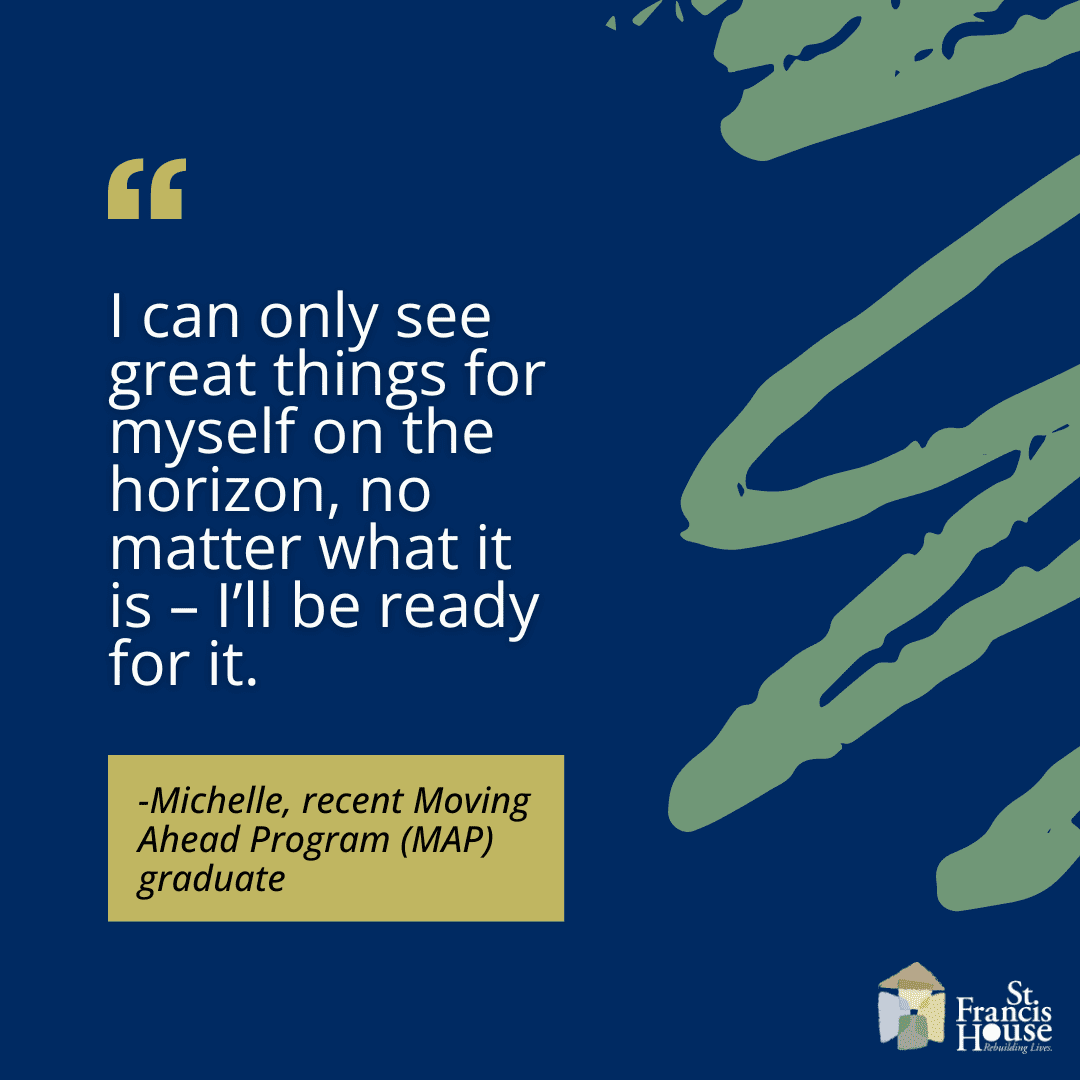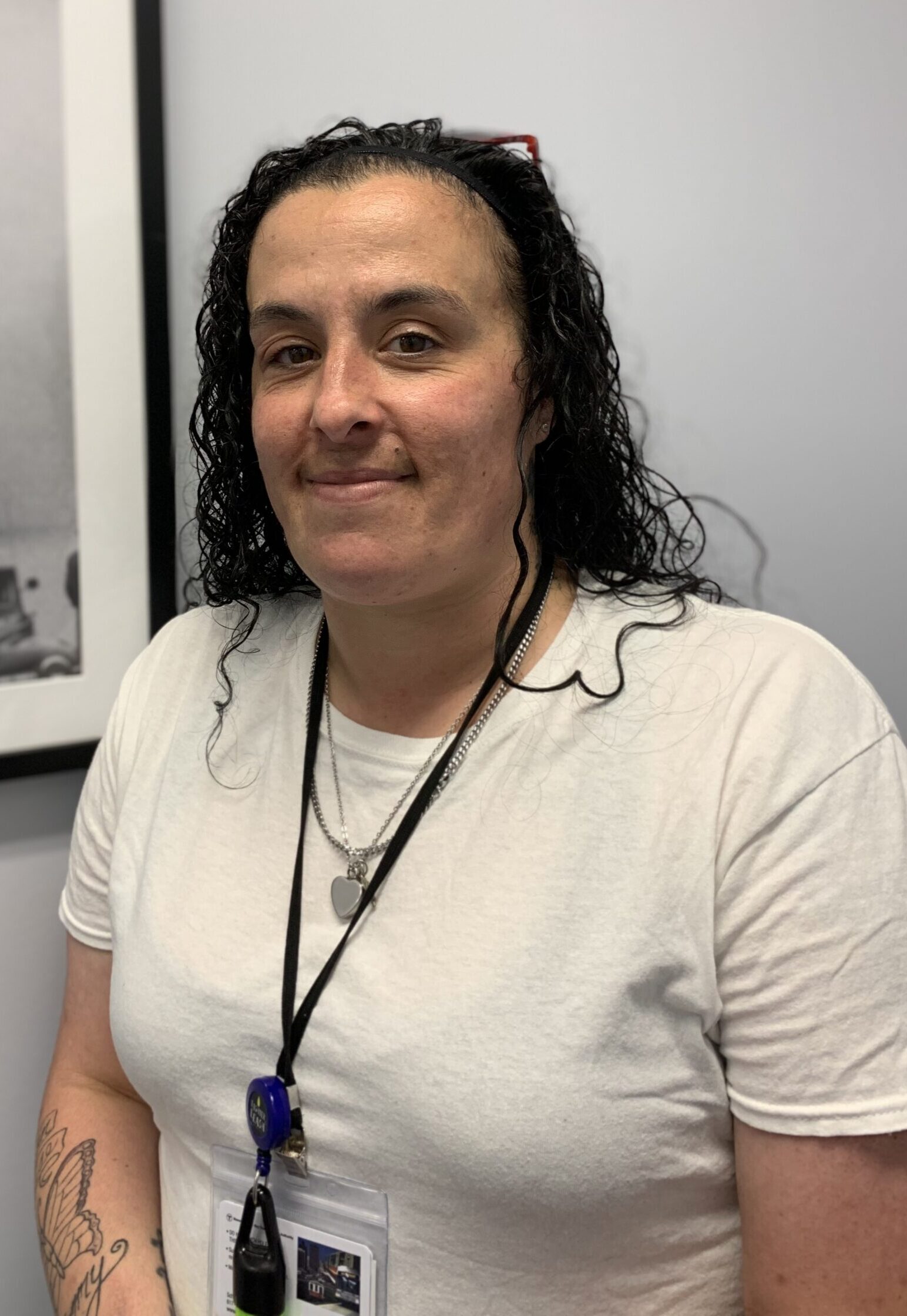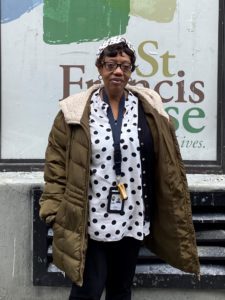 With over 25 years of experience in homeless services, Adrian Eveillard brings dedication and compassion to her work as a Rapid Rehousing and Stabilization Case Manager. When she first came to St. Francis House, she split her time between our Community Engagement and Security team and working part time as Housing Navigator to support our temporary Charles River Inn shelter. Since starting her current role in May 2021, Adrian has helped dozens of individuals experiencing homelessness find and maintain housing, using her humor to connect with clients and build an ongoing supportive relationship.
With over 25 years of experience in homeless services, Adrian Eveillard brings dedication and compassion to her work as a Rapid Rehousing and Stabilization Case Manager. When she first came to St. Francis House, she split her time between our Community Engagement and Security team and working part time as Housing Navigator to support our temporary Charles River Inn shelter. Since starting her current role in May 2021, Adrian has helped dozens of individuals experiencing homelessness find and maintain housing, using her humor to connect with clients and build an ongoing supportive relationship.
Tell me about the work you do at St. Francis House.
As a Rapid Rehousing and Stabilization Case Manager I enroll individuals into the rapid rehousing program and find housing for them. We offer them stabilization services and try to transition them into something more permanent. We also work on life skills, acclimate them to the neighborhood that they move to, and serve as a liaison with the property manager or landlord.
When they’re getting ready to transition into a more permanent setting, my job is to navigate that between the housing authorities and the client.
What part of your job do you enjoy the most?
The challenges. Each individual guest or client has different challenges and I enjoy working through those with them. Setting up goals, making sure that they know that I want to hear from them. I ask them “How? What are the steps for you to reach that goal?”
Naturally, I’m a people person and I’m very passionate about what I do. And for me, it shows in my work.
I can give you an example. I was charged recently with the task of a client who had already had a voucher but she never had a copy of the voucher and didn’t know when it expired. She was stressed out and we were working to make sure she keeps her sobriety.
We were emailing the housing authority and then I went down one day, and I sat for four hours and refused to leave. I walked out with a copy of her voucher.
People on the third floor will hear me say “Yes! Yes!” if I get an email saying a unit has been offered [to one of my clients.]
I’m an advocate and I love to advocate.
I started in the family shelter. I have a gift and I like to see people succeed. I have a saying: “I see something in you that you don’t see in yourself.” Because when we think about homeless people, some people put them in this box. I like to open that box and let all the little gifts fly up like butterflies.
My style is kind of unique. I like to think outside of the box. I use humor a lot to break that ice and I think they respect that.
It is advocacy but also encouragement.
I always say, your success is my success. I’m going to go a hundred percent, but that’s not the same as “I’m going to do everything for you.” That becomes repetitive because you’re not providing life skills training. When you move out, I don’t want you to [have to] come back. I want to see your success.
I understand there’s some barriers and then those barriers take time. Getting a person to see their self-worth after being on the streets and sheltering, that’s a hard. There are a lot of mental things they must go through to see their own self-worth because they’ve been beat down so much.
And I look for that bright light of encouragement. That’s me. I’m an encourager.
Is there anything you wish people knew about your role or your department?
Recently in our program we had six individuals that needed to be housed. In 24 hours, I had all six of them housed. We were given a caseload and there was a timeline that we had to house those six.
It’s about making connections in the field. You know, one landlord, you talk to one landlord, you say, well, do you have any friends that own property.
Also, that we go beyond housing. Housing a person is the easy part. Keeping them housed is the challenge, and it’s my goal to keep them housed. Hence the “stabilization.”
It’s a process. I think about it like that. I have a client who’s been homeless for 15 years and getting him out of that state of mind is a challenge.
That’s why I check in. I’ll say, “Are you okay?” and ask if they want to come up and talk. You can sit in my office, and you can talk about anything. I’m a listening ear and sometimes that’s what people need. Just a listening ear.
